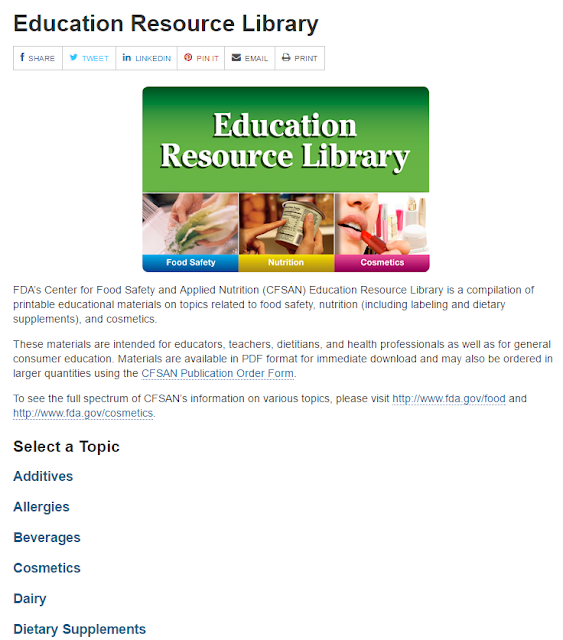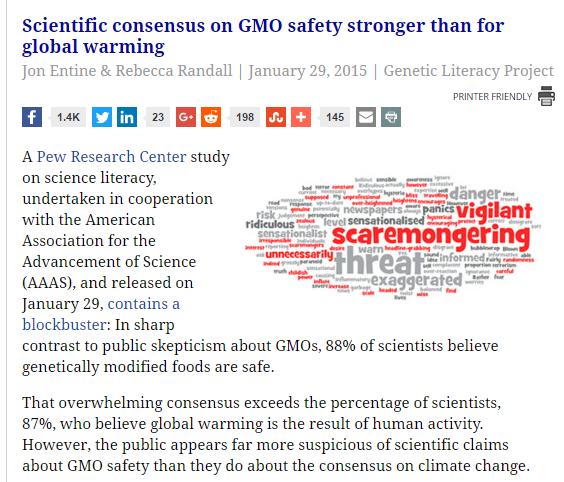I will preface this entry with the fact that I work at Bayer CropScience but as this is a personal blog, these are my own viewpoints and perspectives.
I have come to learn that one thing I always look forward to
these days is when I get a chance to work with our younger generation on
scientific outreach. I do outreach to help people understand what Bayer does. I also do outreach because it is an opportunity for people to understand who we are at a personal level and for me to understand their personal ideologies. I and my colleagues work at a big company, but we are people just like anyone else. When people get to know us and we get to know others, the conversation becomes much more interesting and productive.
Many times this outreach is showing elementary kids how to isolate DNA from bananas or letting middle schoolers participate in a pH experiment. We use fun experiments like making slime to explain to kids the science behind that fun. However when you start working with high school students you can go beyond the simple experiments. Not only can you go deeper into the science but you also realize there is a lot they can teach you.
Many times this outreach is showing elementary kids how to isolate DNA from bananas or letting middle schoolers participate in a pH experiment. We use fun experiments like making slime to explain to kids the science behind that fun. However when you start working with high school students you can go beyond the simple experiments. Not only can you go deeper into the science but you also realize there is a lot they can teach you.
We have so many people committed to outreach and doing such great things to engage our community. This is just one example to share a great experience
we had at work with some very gifted high school students. The team I work with at Bayer is called the Plant Genome Engineering
Group. This is just a fancy way of saying we are the group that makes transgenic
(GMO) soybean plants. We wanted to do
an outreach activity together were we share who we are as scientists and engage some
students to understand our industry and what we do. Most importantly we wanted the conversation to come down to a personal level.
We invited 29 students from Research Triangle High
School, a local high school here in central North Carolina to come to our
site located in Morrisville, NC. Our goal was to:
1.) Let
the student’s network with scientists and get to know us on a more personal
level.
2.) Learn
more about the students and who they are.
What are their concerns and their ambitions?
3.) Teach
the students about our industry and what it means to take a product from start
to finish.
We have some awesome folks in Bayer, one of whom is named
Dean. He and a team had already
established a very in depth case study called NXGen AG. The case study involves a team of students choosing
a GMO product concept and making all the choices needed to get that product to
the finish line. These choices include a
product concept, how many field trials, how to source protein production, how
to handle seed production , what market share to target, and what type of market growth to
target. These were just a few of the decisions the groups need to make. Each group
of students worked with a couple of scientists to understand what these choices
are and then decide on how to proceed.
Watching the scientists and students interact over half a
day was a joy. Both groups were engaged
and asking each other questions. The
room was full of chatter: Why does the protein
that kills the pests not hurt humans? Or
maybe it was the scientist asking, where are you going to college and what do
you want do when you graduate?
At the end of the case study each group was able to
present their product concept. Here they were:
“NWW-492”
A soybean plant with enhanced water efficiency to grow
better in drought conditions.
“Shut-Up”
A soybean with increased yield.
“FortiSoy”
Soybean that is resistant to pests such as catepillars.
“Gen Shield”
Soybean that is resistant to pests such as caterpillars.
“DripDrip”
A soybean plant with enhanced water efficiency to grow
better in drought conditions.
At the end of the day, each team presented their concept,
why they would market this product and what they learned. I feel that this case study does help put
into perspective the decisions we need to make as well as the time and effort
that goes into a product. It also shows
that when dealing with Biology, nothing is a given. For instance a field trial that is hit by a
flood can put your product back one year.
It was a joy to work with the school and students and I look
forward to the next interaction with our community. Even more inspiring is getting
the notes from the school and students.
From the school and students:
·
We wanted
to send our thanks to you and the team at Bayer for the wonderful experience
you hosted for our students last week. One of the parents told me that the kids
didn't stop talking about the trip the entire drive back to school, and I heard
really positive feedback from all of my students.
·
Thank you so much for spending your day with
us! It was really interesting to tour the labs and especially to do the case
study. I really appreciated your talking through each possible scenario
at each of the different steps so we completely understood what could and did
happen throughout the process. I was also really thankful for the time
you took to answer our questions, no matter how complicated they were. It
always felt like you were speaking to the group as though we were your equals,
and that meant a lot. Thank you again for taking the time out of your day to
work with us, and I hope you have a lovely day!
·
Thank you for the wonderful experience you
provided for my group during our school’s tour to Bayer. It was really
insightful from our conversations to see exactly what stance GM specialists
have on GM critics. It was mind blowing to learn just how many safety tests are
required in order for a GM product to reach the market. Also, thank you for
walking us through and letting us experiment with the case study. It was really
interesting seeing how you always tied things that we did within the case study
to real examples you have encountered at work.
·
Thank you for allowing us to come in and work
with you guys! The trip was very informational, interesting, and
intuitive. I enjoyed working with you guys and the activity was
structured very well. I think you guys did a fantastic job explaining things as
well as allowing our group to think for ourselves and make our own
decisions. I appreciate the work you do at Bayer and hope that this
partnership with my school continues for future classes to see and experience
what I did.
·
This trip opened my eyes to the positive side
of GM technology and benefits that can arise from it. I like how in depth
the explanations were when we asked questions and you did a fantastic job
keeping the group on task as well as helping us manage our time. This trip
taught me about the time consuming task of introducing, researching and
developing, and marketing new gm products. Thank you again for allowing
us to come and spending time with us.
·
I really enjoyed coming to Bayer’s Crop
Science. It was a great learning opportunity for me as an AP Biology
student. I enjoyed being able to see the technology that is used to develop
GMOs. I also liked being able to see what Bayer’s Crop Science actually does.
Prior to this trip, I had never heard of Bayer. I think it was cool that
y’all’s company decided to reach out to a group of high school students in
order to share what all you guys actually do. It was fun to be able to go
through a series of real-life scenarios and have to make decisions that would
actually have an impact of the economy, world of crop science, and business.
·
When I get older and get out of college, I
plan to be a businesswoman. I think this was a very cool and educational
experience that allowed me to see a little bit what the business world is like.
Giving our pitches to an actual board of scientists was fun. I enjoyed the way
that they gave feedback. They informed us of what we did right and what we did
wrong. Thank you for being the leader of my group and helping us to enjoy and
be informed during our time at Bayer.
·
Thank you for spending your day with us at
Bayer. I certainly learned a lot about how your company functions as well as
the crop science industry. It was very interesting to learn about the entire
process of creating a product and putting it on the market through the
simulation that we did. It was a pleasure working with you guys and the rest of
our group, and it was a great surprise to win the ‘competition’ for the
investment!
·
I really appreciated your patience and
willingness to answer questions or go in depth about any sort of topic
throughout the simulation. It really shows how passionate you are about what
you do at Bayer. I wish you success in your work and have a great day!
·
Thank you so much for spending your morning
with us and being helpful to our group during the exercise. Your knowledge and
expertise helped my group make informed decisions on the economic and
biological situations that can occur when marketing a GMO product. This
experience was amazing for me thanks to the both of you, and I have a better
understanding of how biology is linked more closely with business. Thank you
again!















